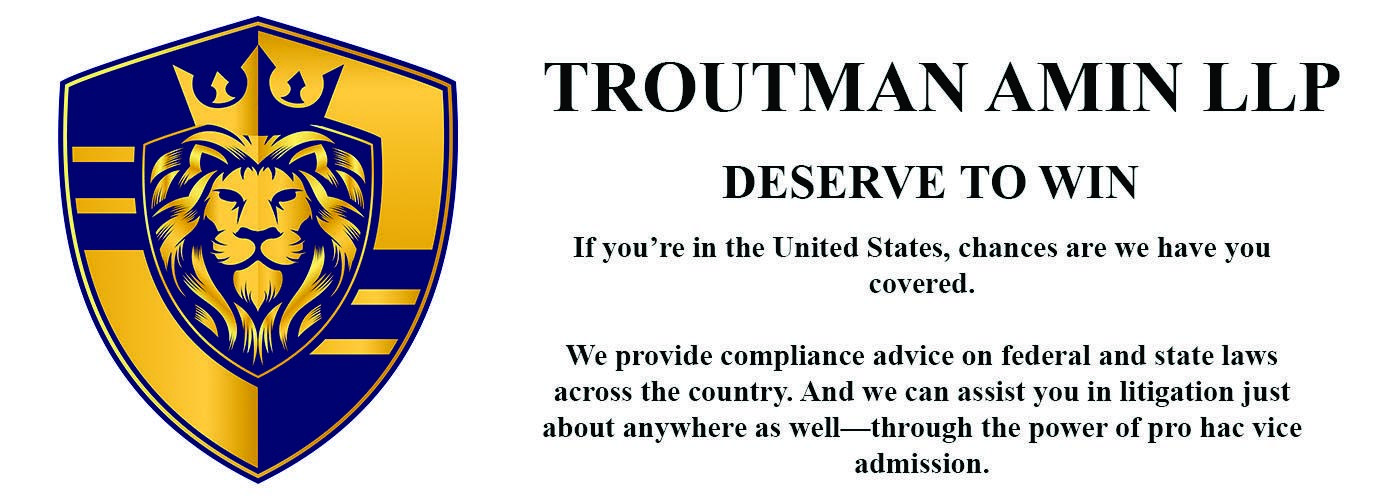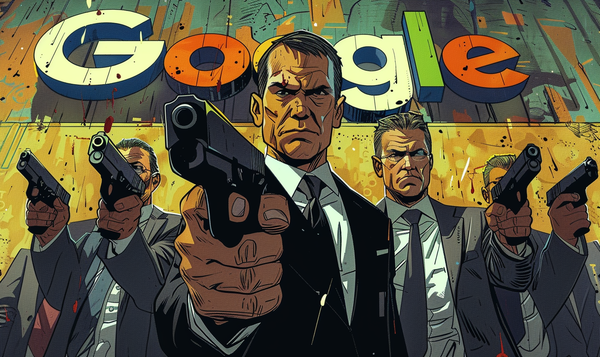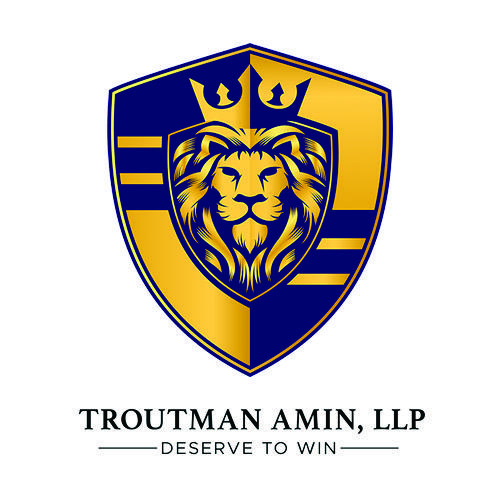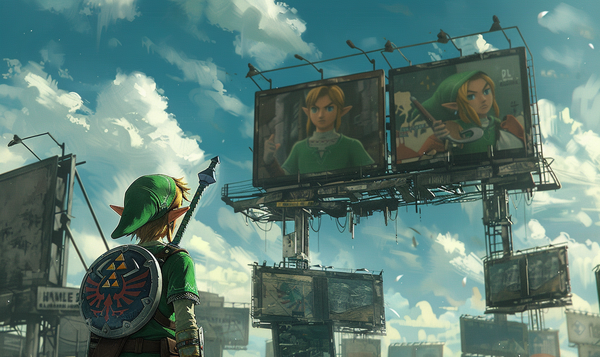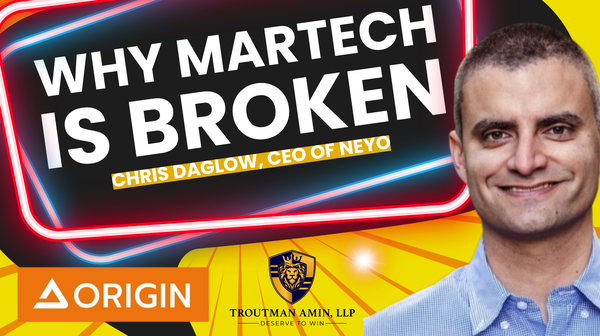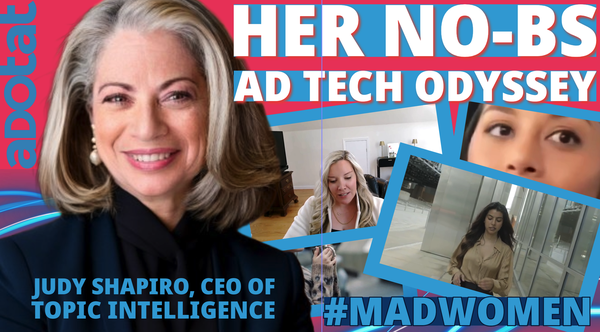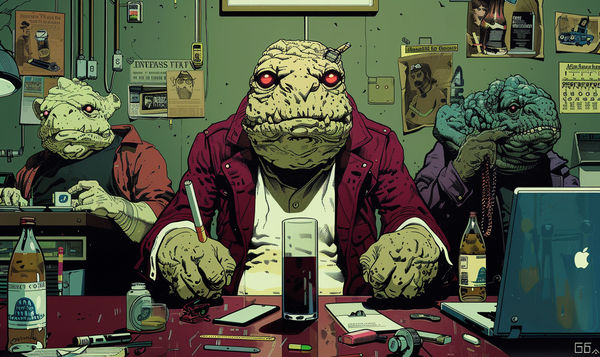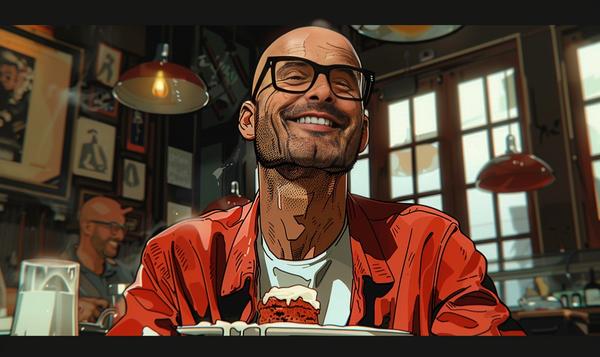🎬 Ready to turn your TV ads into showstoppers? Origin's zero-code CTV solutions are here to rescue your marketing campaigns from the abyss of mediocrity. With our award-winning creative tech, you'll captivate audiences both in the living room and on-the-go. We blend cutting-edge ad formats with direct media partnerships to ensure your brand doesn't just get seen – it gets remembered. Think agile
storytelling, dynamic creatives, and unparalleled attention metrics. Join the ranks of savvy marketers who trust Origin to elevate their advertising game. Dive into the future of CTV with Origin – where attention isn't just grabbed, it's held hostage. :LEARN MORE
Google vs. The DOJ: A Masterclass in Awkward Backpedaling
How bad is it going for Google in court? Picture this: a tech titan stumbling through a courtroom like a guy who showed up to a marathon in flip-flops, convinced he could still
take home the gold. Day 4 of Google’s antitrust trial brought us exactly that vibe. We kicked off with Rahul Srinivasan, former Google product manager, opening the day with what looked like an attempt at an Olympic gold in ‘awkward backpedaling,’ stating that he wasn’t represented by the same counsel as Google during his deposition. Sure, Rahul. Pull the other one.
Then we had Jed Dederick from The Trade Desk, who managed to
drop a truth bomb so potent it could've doubled as a mic drop. Imagine Coca-Cola selling a bottle to your local bodega for 70 cents while Walmart is paying a buck. Yeah, exactly. That's the lunacy Jed compared Google's Open Bidding strategy to—baffling everyone except, apparently, Google themselves. The DOJ
put on a courtroom performance that had Google looking like the lead in a corporate reality show no one asked to watch. They queued up internal recordings from a 2019 publisher meeting, a greatest hits compilation of Google’s most dubious tactics, where the term “convenience” was thrown around with all the sincerity of a used car salesman at the end of the month. For the publishers in the room, Google’s “Unified Pricing Rules” (UPR) didn’t sound like efficiency; it sounded like a hostile
takeover. You could practically hear the collective eye-rolls when Rahul Srinivasan, Google’s ever-smiling frontman, tried to pitch UPR as a helpful tool to “centrally control pricing.” In other words, “Hey, let us handle all the money—you don’t need to worry your pretty little heads about where it goes.” Spoiler alert: it wasn’t going into the publishers' pockets. Things only got juicier as the DOJ started peeling back the layers of Google’s internal email traffic
from 2018. The emails painted a picture of a company that was less concerned with fair play and more interested in rewriting the rules to suit their game. Google knew full well that publishers were setting higher price floors for AdX—basically trying to get a better deal. But Google wasn’t having any of that. The emails revealed a roundtable of corporate schemers brainstorming ways to pull the rug out from under these pesky publishers. And then came the pièce de résistance: Sam Cox, a Google
executive, sounding like a spoiled teenager who wasn’t getting his way: “I keep thinking about publishers setting high floors for AdX… it makes me want to turn off that ability.” Ah, classic Google—when the game isn’t going in your favor, just flip the board and start over. This wasn’t just a tantrum over losing; this was a full-blown strategy session on how to rig the game. Google’s team was brainstorming like a cabal of villains in a B-list spy flick, plotting to
dismantle any attempt by publishers to level the playing field. The internal memos read like the diary of a monopoly desperate to stay in control: “What if we just take away their ability to set floors altogether?” It was as if Google’s executives were sitting around a table, furiously twirling their mustaches, contemplating how to make it impossible for publishers to make a fair profit. After all, why let a few inconvenient truths like “market competition” or “fairness” get in the way of a good
revenue stream? What was particularly delicious about the DOJ’s takedown was how it exposed Google’s dual personality—one side smiling politely in public, insisting it’s all about improving the ecosystem, and the other scheming in the backroom, plotting how to squeeze every last dollar from that same ecosystem. The emails were crystal clear: Google wanted to maintain their iron grip on the digital ad market, and if that meant kicking a few publishers down the
stairs, so be it. The DOJ didn’t just shine a light on the shady corners of Google’s business practices; they threw open the windows, aired out the room, and handed the public a front-row seat to a show that’s equal parts drama and farce. Google’s playbook wasn’t just revealed—it was read aloud, page by incriminating page. By late 2018, Google decided to roll out its version of a “special offer”—a move to first-price auctions combined with the removal of Last Look privileges, all packaged like a “deluxe” meal deal where you’re promised a burger and fries, but end up with a soggy bun and some salt-drenched spuds. And let’s not forget, they’ve taken away the drink, too. They knew the publishers would despise it—hell,
they banked on it. But Google, in its infinite wisdom, figured the “best opportunity to clean this up” was to stuff it down the throats of publishers like they were foie gras geese. And when the publishers started choking? Google’s response was a casual, “They’ll get over it.” Sure, just like one “gets over” major dental surgery without anesthesia. The back-and-forth over these changes played out like a Shakespearean farce, but with none of the wit and all the
drama. Google’s execs came out swinging, but their swings were more like limp wrist flicks. Stephanie Layser and her colleagues kept raising their hands like frustrated kids in a classroom, asking, “What’s the plan if we decide your ad server is terrible and we want out?” Rahul, ever the charmer, said, “We’ll explore it.” Cue the collective groan. Because in Google-speak, “we’ll explore it” roughly translates to “we’re going to shove this in a drawer marked ‘never’ and hope you shut up about
it.” Of course, no one ever heard back from Google on that one. Why would they bother? When you own the sandbox, why care if the other kids decide to take their toys and go home? For the publishers, every day felt like watching control slip further away, like trying to hold water in a sieve. One exec described it as a “hard pill to swallow,” but that’s putting it mildly—it was like swallowing a cactus. Yet, Google wasn’t offering water to wash it down. Instead,
they were hitting publishers with psychobabble straight from the Gaslighter’s Playbook. They dismissed genuine grievances as nothing more than “control loss aversion.” Oh, you don’t like it when we pull the rug out from under you? Must be your control issues acting up again. Publishers wanted to branch out, diversify their income streams, maybe grow a little independent—kind of like trying to plant a garden. But Google kept swinging by with a lawnmower, chirping, “Just stay in our little walled
garden. It’s safer here. Cozier, too.” And then there was the day’s pièce de résistance: Google’s bumbling attempts to defend their market maneuvers. The judge was clearly losing patience, dropping snarky remarks that only added to the courtroom’s awkwardness. Google’s lawyers attempted to justify their changes by claiming they were trying to reduce complexity. Sure, let’s call it that—because fewer options for publishers always
screams “simplicity,” right? As the day wrapped, the court got a backstage pass to the internal tensions that have been simmering in the ad tech world. Rajeev Goel, co-founder and CEO of Pubmatic, didn’t pull any punches when he took the stand. He described the bizarre, almost schizophrenic relationship companies have when dealing with Google—as if they were asked to play a game while being forced to hand over their playbook to
the other team. You want to partner with Google because of their massive reach and demand, but every bit of information you share feels like feeding intelligence directly to your competitor. It’s a twisted game of chess where every move you make could be the one that topples your own king. Tom Kershaw, the former CTO of Magnite, came in with his own set of fireworks, taking Google’s so-called “independent” ad server narrative and tearing it apart like an old
receipt. He painted a picture of an ad server so tangled in conflicts of interest that calling it independent is like calling a puppet free when you can still see the strings being pulled from above. Kershaw argued that Magnite, unlike Google, is a true independent server because it serves only publishers and doesn’t double dip in the way Google does—playing referee, player, and scorekeeper all at once. His message was clear: Google's stranglehold on the ecosystem makes it nearly impossible for
anyone else to compete on a fair playing field. These testimonies underscored a much larger problem: the fundamental imbalance of power in the digital ad market. Google’s dual role as both platform and competitor doesn’t just tip the scales—it crushes them entirely. Goel’s and Kershaw’s accounts highlight how other players in the space are stuck in an impossible situation, forced to collaborate with a company that controls the very marketplace they’re trying to
succeed in. It’s the ad tech version of "keep your friends close and your enemies closer," but when your enemy owns t Google’s courtroom antics are becoming less of a legal battle and more of a tragicomedy. They're trying to navigate the mess they made while the world watches, popcorn in hand, wondering just how many more ways they can trip over themselves before this trial is over.
JOIN THE CONVERSATION ON LINKEDIN
|
THREE STORIES THAT YOU NEED TO KNOW in a format that isn't TL:DR summarized for the busy executive
Google is adding encryption to its ad tech, rolling out "confidential computing" to keep advertisers' customer data
secure and transparent while they serve you hyper-targeted ads. This isn't just some tech buzzword fluff; it involves Trusted Execution Environments (TEEs), which protect data like passwords or credit card numbers from prying eyes. Google’s move means all this heavy-duty encryption happens behind the scenes, so advertisers won't even notice—except when they sleep better at night knowing their data isn't walking out the back door. And because sharing is caring, Google’s tossing in a
freebie: its TEE architecture and open-source examples, letting other companies get in on the security game. Expect this rollout to expand, starting with first-party data processing for Google Ads soon, because nothing says privacy like having Google in charge of it. Ogilvy just promoted Fiona Gordon to Global CEO of advertising, which feels like a natural progression after she conquered Ogilvy UK with a string of wins that would make a Monopoly player blush—think Molson Coors and Kettle Chips. Gordon’s resume reads like a Greatest Hits album of agency leadership, from boosting Ogilvy Singapore to “Agency of the Year” to wrangling giants like Unilever and GSK. Now, she’ll be answering to Devika Bulchandani, who
clearly sees her as the Gandalf of advertising—wise, creative, and wielding serious power. And with WPP’s recent acquisition of New Commercial Arts, it looks like the Ogilvy empire is set on full expansion mode, ready to conquer more of the UK market. Meta's Reminder Ads just got a major glow-up on
Instagram, with new API capabilities giving marketers the same tools they had in Meta Ads Manager. After a chorus of developer complaints about missing features, Meta is finally syncing things up, letting advertisers drop reminders not just in the feed and stories, but in Reels too—the digital goldmine that's Meta's pride and joy. These Reminder Ads serve as gentle nudges, pinging users three times to make sure they don’t forget that must-watch webinar or flash sale. It’s like setting
an alarm clock for your shopping FOMO. By bridging the promo-to-launch gap, Meta’s got its sights set on keeping you glued to every piece of content that matters... to them. What's in a name? Well, if you're Twitter rebranded as X, apparently a lot less. Brand Finance just kicked X off its prestigious "Media 50" ranking, slashing the platform's brand value to a paltry $673 million—a stunning 88% drop from the $5.7
billion it held before Elon Musk took the wheel and decided "X" marks the spot. The brand’s strength score also took a nosedive, signaling a reputation crisis fueled by sketchy content moderation and a messy antitrust lawsuit that forced the World Federation of Advertisers to shutter an initiative. Meanwhile, Google is still the heavyweight champ in media value, TikTok continues its meteoric rise, and Meta is flexing hard with Instagram's 48% growth. Even WeChat, hit by a 17% value dip,
still scores higher than X. Musk's bet on rebranding might go down as the quickest way to burn billions since, well, buying Twitter in the first place.
You're looking for an edge in your online marketing. ADOTAT.com is the answer. Our library of resources has been compiled by some of the world's top internet marketing experts, and it's constantly updated with new information, case studies, and
strategies.
We want to help you succeed online - that's why we offer this information for free. It's our way of giving back to the community and helping people achieve their business goals.
Sign up now and gain access to our entire library of
resources!
Want to advertise? Contact pesach@adotat.com |
|
|
The most POWERFUL name in
CIPA AI class action defense and counseling |
Let’s talk about Chris Daglow. This is the man who turned Guardiant Health from a sleepy little $100 million startup into a $10 billion juggernaut that steamrolled its way to an IPO. Not with superhero powers, mind you — unless you count caffeine as a superpower — but with a level of digital marketing
savvy that makes the rest of us look like we’re still trying to figure out how to set up our voicemail. WATCH THIS SHOW
In this episode of The ADOTAT Show, we're cracking open the complex world of ad tech with the one and only Judy Shapiro. If you've ever wondered how the marketing and advertising industries really operate behind the scenes—especially when it comes to cookies, privacy concerns, and the shady practices of
some agencies—this episode is your backstage pass. WATCH THIS EPISODE
In this must-watch episode of The ADOTAT Show, Pesach Lattin sits down with Jon Walsh, the mastermind behind JobsinAdtech.com, to unpack over two decades of ad tech evolution. With 24 years of experience navigating the complex world of digital advertising,
WATCH THIS EPISODE.
Meet Erin Hawryluk, the VP of Marketing at Cadent. This dynamo doesn’t just navigate the chaotic world of ad tech; she bulldozes through it like a wrecking ball through a Jenga tower. Balancing career and kids with the finesse of a tightrope walker
and the fire of a dragon, Erin is a force of nature. Picture a juggler at a three-ring circus, but instead of balls, she's handling spreadsheets, data, and an endless stream of strategic meetings. She’s been through it all, from ad sales to product marketing, and has enough stories to fill a best-selling thriller—or at least a very entertaining graphic novel. READ THE FULL INTERVIEW
SPONSORED CONTENT BY ORIGIN
Feeling stuck in the car sales slow lane? It's time to shift gears and rev up your dealership’s marketing game! Discover how Connected TV (CTV)
advertising is transforming the car-buying landscape. With unpredictable inventory, inflation, and post-COVID consumer habits, selling cars is like hitting a moving target. But don’t fret! CTV offers precision targeting, hyper-local reach, and seamless cross-device campaigns. Dive into the latest trends and learn how to turn these challenges into opportunities. Your dealership’s digital evolution starts here – read on and get ahead of the curve!
READ THE ARTICLE AT ORIGIN.
Simon Halstead: AdTech’s Cake-loving Oracle
In our ever stranger industry, there’s one name that stands out like a neon sign in a dystopian cityscape: Simon Halstead. This isn’t just any strategist; he’s the guru who can decode the industry’s most cryptic secrets while
sipping a latte, all while dropping truth bombs with the precision of a master marksman. Simon Halstead is the kind of guy who, when he speaks, the room listens—and for good reason. READ THE FULL INTERVIEW
Jon Bond: The Legend Who Ditched Cookies for a Weightless World. Jon Bond isn’t just a name in advertising; it’s a blazing marquee in the hall of fame of marketing mavens. This dynamo, who forged his reputation at the helm of Kirshbaum, Bond and Partners,
is now piloting the good ship Weightless through the turbulent seas of advertising, where antiquated tactics are about as useful as a pager in the age of smartphones. With the glint of a seasoned iconoclast, Jon dishes on his latest caper, "We're steering a cookie-less AI media firm," tossing a playful jab at the industry’s old guard clinging to data-tracking cookies like a lifeline. "Picture this," he quips, "you’re entering a space race, but your competition is saddled with horse and buggies
while you’ve already launched the rocket." READ THE FULL ARTICLE
|
|

